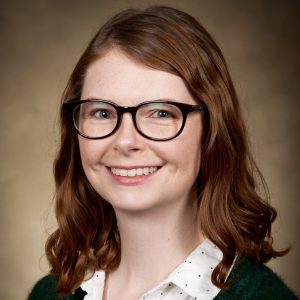This reflection was written by Alissa Matheny Helms (@alinthearchives), Digital Access Coordinator at the University of Alabama Libraries. Alissa attended the Forum in November with support from a Students & New Professionals Fellowship.
Being an early career LIS professional, I was honored to be named a Digital Library Federation Forum Fellow this year, and when I began reflecting on my experience at the 2016 Forum, I did not think I would keep coming back to such an arguably unexciting theme. But LIS folks tend to be practical, and the DLF community embraces that practicality by supporting people who “collaborate and get stuff done.” So as I left Milwaukee at the end of the week, glancing through my conference notes, I noticed that for every presentation, every talk, I had at least one concept, author/title, or resource underlined and next to which written “look this up!” And what’s remarkable is that all those things I wanted to learn more about are documented, either in the Forum Community notes or on Open Science Framework pages for each session, or elsewhere online.
It was clear from every discussion and every presentation that the people of the DLF community are doing amazing things for digital libraries. It is inspiring to see the wide array of things being accomplished by those wearing multiple hats as librarians, developers, researchers, instructors, and managers. This is a community of creative practitioners actually doing things. In my own work, documentation is fundamental to the mission of the unit; without policy, procedures, workflows, etc. in place and a way of tracking changes, the department could not function. For the larger DLF community, documentation is a means of collaboration and sharing ideas to advance creative projects, concepts, and resources that benefit the entire community and those we serve. Access to easily findable information is incredibly valuable and essential to collaboration and growth. This was evident in the number of participants that not only presented projects or research, but also showed the process or workflow involved.
I left the Forum with much more than a notebook full of questions, ideas, and resources to investigate; I left with a better sense of who I want to be as an LIS professional and a renewed understanding of why we do what we do. Each conversation I had, session I attended, and plenary talk I listened to reinforced that what we do matters and that it is the people that matter most of all. And that focus on people is what makes the DLF community exceptional – generosity, welcoming nature, and openness – and it’s all documented and accessible in DLF’s Code of Conduct, the Inclusivity Subcommittee within the Forum Planning Committee, and the recent Re-Affirmation of Commitment to diversity, inclusion, equity, and social justice.

